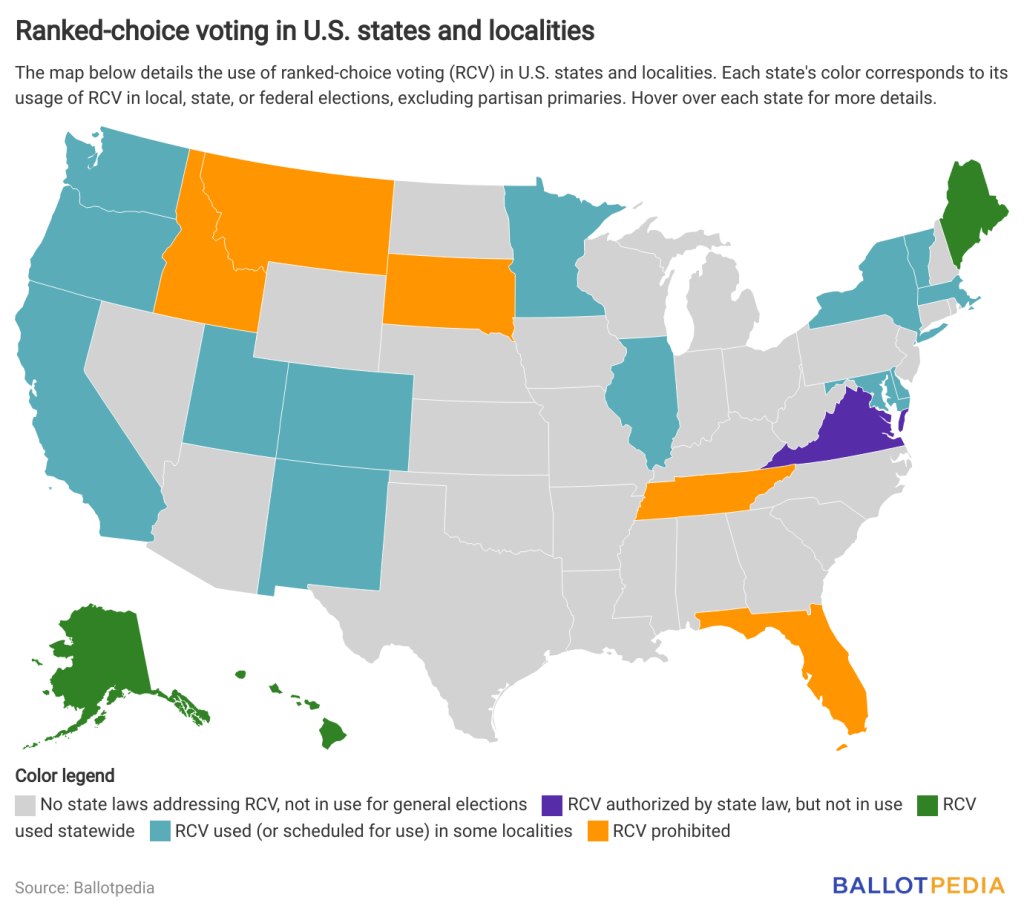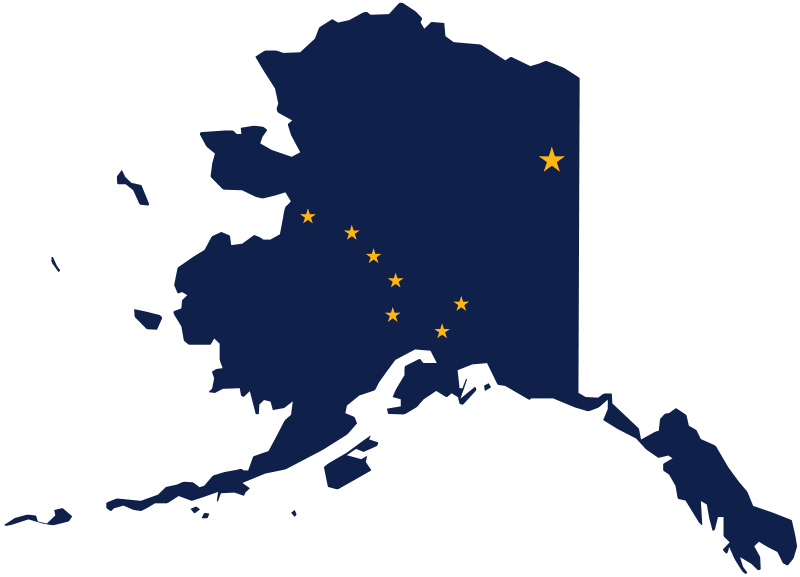In Alaska, a campaign supporting an initiative to repeal top-four ranked-choice voting (RCV) submitted 41,895 signatures on Jan. 12. The initiative could appear on the general election ballot in Nov.
In 2020, voters approved Ballot Measure 2, which replaced partisan primaries with open top-four primaries and established ranked-choice voting for general elections, including the presidential election. Ballot Measure 2 received 50.55% of the vote.
A ranked-choice voting system (RCV) is an electoral system in which voters rank candidates by preference on their ballots. If a candidate wins a majority of first-preference votes, he or she is declared the winner. If no candidate wins a majority of first-preference votes, the candidate with the fewest first-preference votes is eliminated. Ballots that ranked a failed candidate as their first, or highest choice, depending on the round, are then reevaluated and counted as first-preference ballots for the next highest-ranked candidate in that round. A new tally is conducted to determine whether any candidate has won a majority of ballots. The process is repeated until a candidate wins an outright majority.
Alongside Alaska, Maine also uses RCV for certain federal and statewide elections, while Hawaii uses RCV for certain statewide elections. Thirteen additional states also contain cities or other localities that either use or are scheduled to begin using RCV in municipal elections. Five states—Florida, Idaho, Montana, South Dakota, and Tennessee—enacted legislation prohibiting RCV.
Since 1915, there have been more than 150 ballot measures to adopt or repeal RCV systems. From 1965 through 2023, there were six statewide RCV ballot measures in four states. Voters approved four (66.7%) and rejected two (33.3%). For local ballot measures, 67 were decided by voters to adopt RCV. Voters approved 52 (77.61%) and rejected 15 (22.39%) of these measures. Meanwhile, there were seven local ballot measures to repeal RCV. Voters approved four (57.14%) and rejected three (42.86%) of these measures.
Two states—Nevada and Oregon—will be voting to pass RCV in 2024. Meanwhile, Arizona will be voting in 2024 to require partisan primary elections for partisan offices.

Alaskans for Honest Elections is leading the campaign to repeal RCV in Alaska. With campaign finance reports going up to Oct. 7, 2023, $306,577 in contributions were reported and $483,014 in expenditures were reported. The Ranked Choice Education Association, the top donor, contributed $92,000.
The campaign opposing the initiative, Alaskans for Better Elections, supported Ballot Measure 2 in 2020. With campaign finance reports through Jan. 7, 2024, Alaskans for Better Elections reported $637,648 in contributions and $945,292 in expenditures. Top donors included Alaskans for Better Elections, Inc., which contributed $262,778, and Article Four, which contributed $133,385.
For the measure to get on the 2024 ballot, a minimum of 26,705 valid signatures are needed. If enough signatures are determined to be valid, the initiative will go to the Alaska State Legislature. The Legislature can either approve the initiative or let it go to the ballot for voters to decide on Nov. 5, 2024.
Additional reading:



